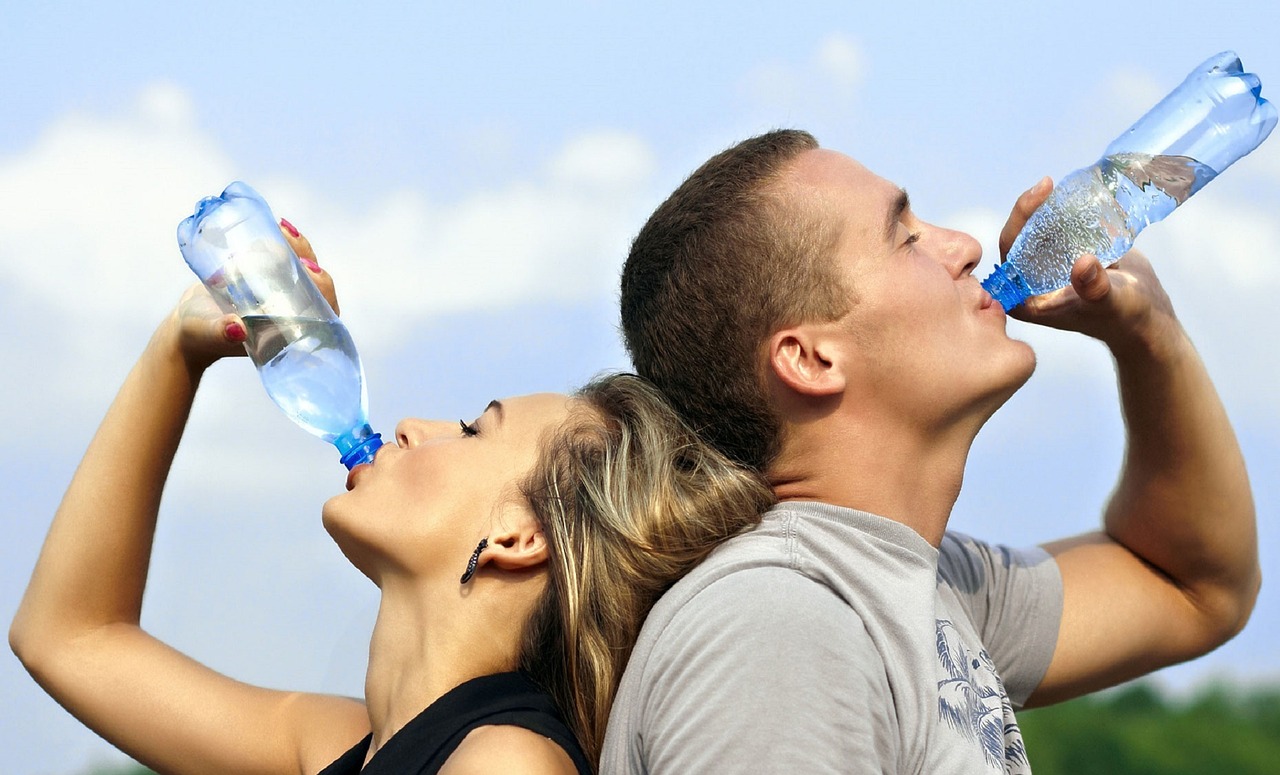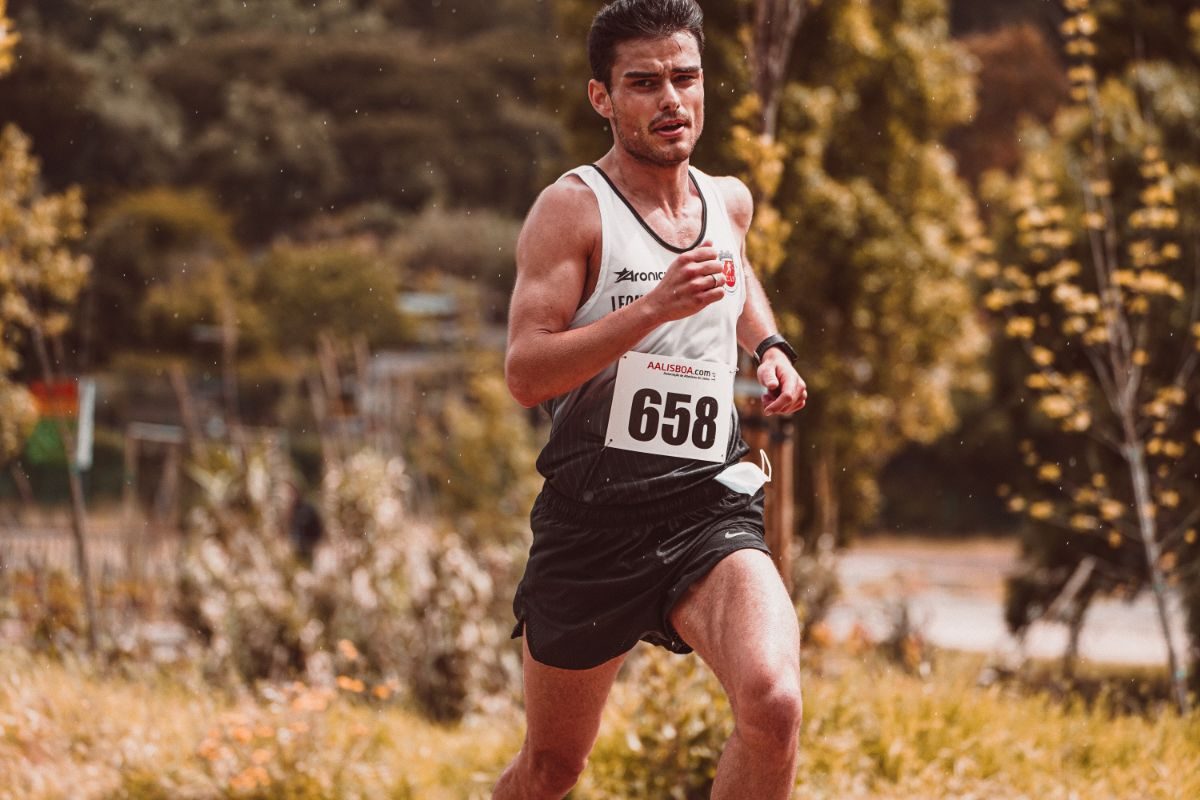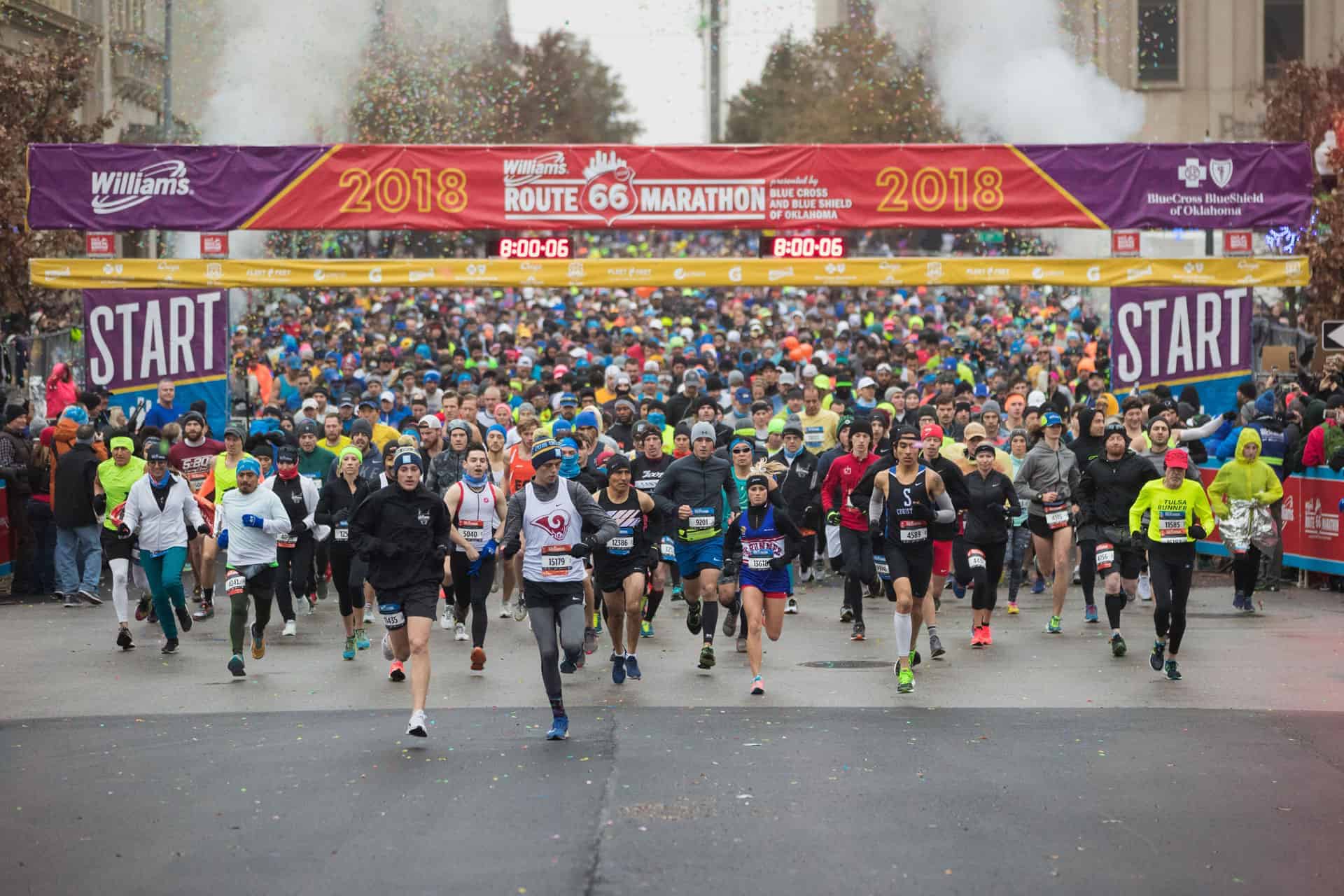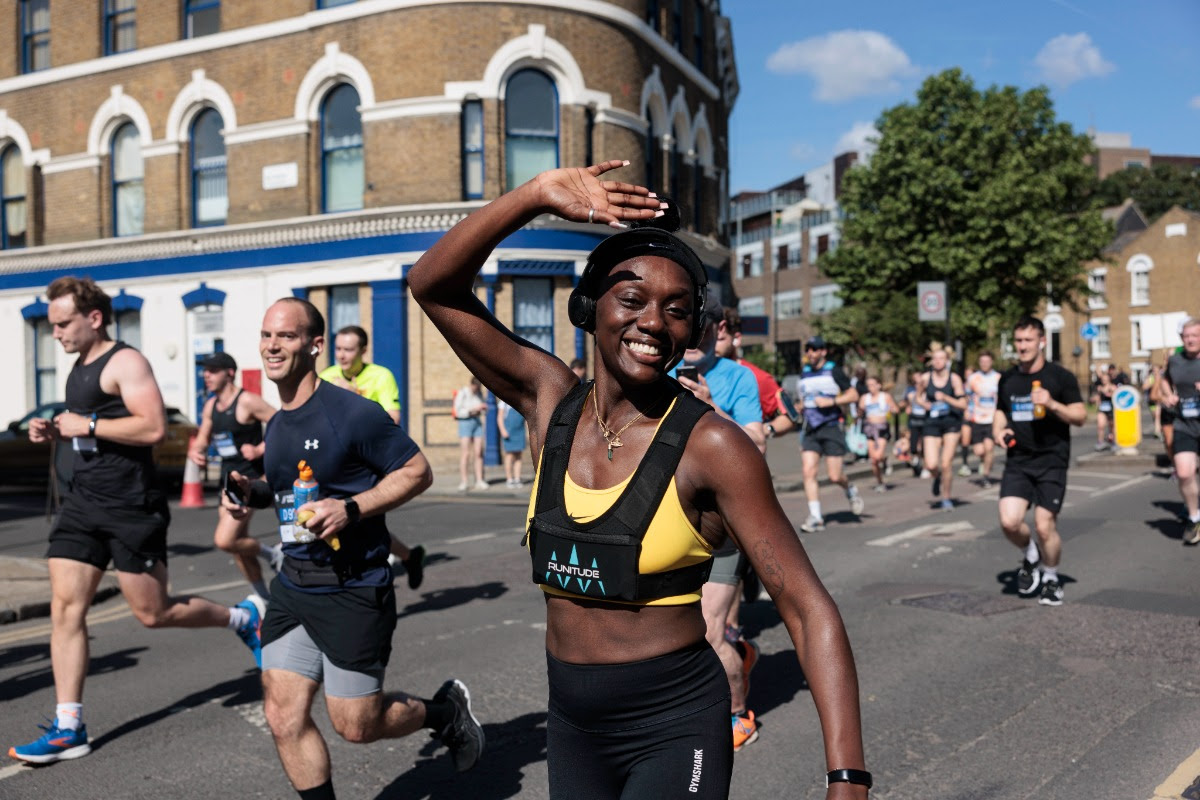Home>Misc>Featured>How Much Water To Drink For A Half Marathon


Featured
How Much Water To Drink For A Half Marathon
Modified: January 2, 2024
Find out the optimal amount of water to drink during a half marathon with our featured guide. Stay hydrated and maximize your performance!
Introduction
Preparing for a half marathon requires not only physical training but also careful attention to hydration. As a runner, you may already be familiar with the importance of staying hydrated during your training runs. However, when it comes to the actual race day, understanding how much water you need can make a significant difference in your performance and overall well-being.
Hydration plays a vital role in optimal athletic performance. It helps regulate body temperature, lubricates joints, and aids in the delivery of nutrients to muscles. For half marathon runners, maintaining proper hydration is particularly crucial due to the duration and intensity of the race.
In this article, we will dive into the importance of hydration for half marathon runners and discuss various factors that can affect individual hydration needs. We will also provide practical tips on calculating your water requirements, as well as pre-race and post-race hydration strategies. By understanding and implementing proper hydration techniques, you can enhance your endurance, minimize the risk of dehydration, and improve your overall race experience.
Remember, the information provided here is not one-size-fits-all. Every individual is unique, and their hydration needs may vary. It”s essential to listen to your body, experiment during training, and adjust your hydration plan accordingly. So, let”s explore the world of hydration together and ensure you have the best possible half marathon experience!
Importance of Hydration for Half Marathon Runners
Hydration is paramount for half marathon runners. It directly impacts your performance, endurance, and overall well-being during the race. Let’s delve into why hydration matters so much and how it can affect your race day experience.
First and foremost, adequate hydration helps regulate your body temperature. When you run, your body generates heat, which needs to be dissipated to prevent overheating. Sweating is your body’s natural cooling mechanism, but it also leads to fluid loss. Without sufficient hydration, your body struggles to cool down effectively, resulting in an increased risk of heat stroke or exhaustion.
Furthermore, hydration plays a crucial role in maintaining joint lubrication. Running puts significant stress on your joints, and without proper hydration, they can become less efficient and more prone to injury. Staying well-hydrated helps ensure that your joints remain lubricated, reducing the risk of discomfort and potential damage.
Proper hydration is also essential for fueling your muscles. During a half marathon, your muscles rely heavily on glycogen, a form of stored carbohydrates, for energy. Hydration helps transport glycogen to your muscles, ensuring they have the necessary fuel to perform optimally. Dehydration can lead to decreased glycogen levels, resulting in muscle cramps, fatigue, and a decline in performance.
Moreover, being adequately hydrated improves the delivery of nutrients and oxygen to your muscles. This is critical for maintaining their functionality and preventing muscle fatigue. When you are dehydrated, blood thickness increases, making it more difficult for it to flow freely throughout your body. As a result, your muscles may not receive the necessary nutrients and oxygen, affecting their performance and potentially leading to muscle cramps or exhaustion.
Lastly, hydration plays a significant role in maintaining your overall well-being during a half marathon. Dehydration can cause symptoms such as dizziness, lightheadedness, headaches, and nausea, all of which can significantly impact your ability to complete the race comfortably.
Given these reasons, staying properly hydrated is absolutely crucial for half marathon runners. In the next section, we will explore the various factors that can affect your hydration needs, allowing you to tailor your hydration plan specifically to your individual requirements.
Factors Affecting Hydration Needs
Hydration needs can vary from person to person, and several factors come into play when determining how much water you should consume during a half marathon. Understanding these factors is crucial for developing a personalized hydration strategy. Let’s explore the key factors that can affect your hydration needs:
1. Sweat Rate: The rate at which you sweat plays a significant role in determining your hydration requirements. Some individuals naturally sweat more than others, leading to higher fluid loss. To gauge your sweat rate, weigh yourself before and after a training run. For every pound lost, it is recommended to consume approximately 16-24 ounces (450-680 ml) of fluid to replenish lost fluids.
2. Environmental Conditions: The weather and environmental conditions on race day can greatly impact your hydration needs. Hot and humid conditions, for instance, can cause increased sweating and dehydration. On the other hand, cool or cold weather may decrease your sensation of thirst, making it easier to overlook your hydration needs. Adjusting your fluid intake based on the weather conditions is vital to prevent dehydration.
3. Race Pace and Duration: Your race pace and the duration of the half marathon will influence your hydration strategy. The faster and longer you run, the more fluid you’ll need to consume to avoid dehydration. During intense exercise, such as running a half marathon, it is recommended to aim for 4-8 ounces (120-240 ml) of fluid every 15-20 minutes.
4. Individual Variations: Every individual has unique hydration requirements. Factors such as body weight, metabolism, and fitness level can influence how much water you need to consume. Assessing your own hydration needs during training runs can help you determine how much fluid you require during the actual race.
5. Electrolyte Balance: Hydration isn’t just about water intake; it’s also about maintaining proper electrolyte balance. Electrolytes, such as sodium, potassium, and magnesium, are essential for maintaining fluid balance and muscle function. Sweat contains electrolytes, so replenishing them during a half marathon is crucial. Consider consuming sports drinks or electrolyte supplements to maintain the optimal electrolyte balance.
By taking these factors into account, you can develop a hydration plan tailored to your specific needs. In the next section, we will discuss how to calculate your water requirements and ensure you’re adequately hydrated on race day.
Calculating Water Requirements for Half Marathon
Calculating your water requirements for a half marathon is crucial to ensure you stay properly hydrated throughout the race. Here are some steps to help you determine how much water you should consume:
1. Determine your Sweat Rate: As mentioned earlier, understanding your sweat rate is important in estimating your fluid loss during a half marathon. During a training run, weigh yourself before and after the run to see how much weight you’ve lost. Each pound lost is roughly equivalent to 16-24 ounces (450-680 ml) of fluid. This will give you a reference point for calculating your water requirements on race day.
2. Consider Environmental Factors: Take into account the weather conditions for race day. Hot and humid conditions may increase fluid loss due to excessive sweating. Adjust your fluid intake accordingly to compensate for the increased water loss. Use the information from your training runs in similar weather conditions to guide your hydration plan.
3. Determine Your Hourly Fluid Intake: Based on your sweat rate and the duration of the half marathon, calculate your hourly fluid intake goal. For example, if you lose one pound (16 ounces) of fluid per hour, aim to consume 16-24 ounces (450-680 ml) of fluid every hour during the race. Adjust this based on your individual factors discussed earlier.
4. Experiment During Training: It’s essential to use your training runs as an opportunity to experiment and fine-tune your hydration strategy. Test different fluid intake amounts and frequencies to see what works best for you. Keep track of how you feel during and after each run to make adjustments as necessary.
5. Be Mindful of Electrolytes: Remember that hydration isn’t just about water—it’s also about maintaining the right balance of electrolytes. Consider consuming sports drinks or electrolyte-rich fluids during the race to replenish the electrolytes lost through sweating. Ensure you are getting an appropriate amount of sodium, potassium, and magnesium to support optimal muscle function and hydration.
6. Listen to Your Body: Ultimately, the best gauge of your hydration needs is listening to your body. Pay attention to thirst cues and how you feel during the race. If you feel excessively thirsty or experience symptoms of dehydration, increase your fluid intake accordingly.
By calculating your water requirements and adapting your hydration plan based on your individual factors, you can optimize your performance and minimize the risk of dehydration during a half marathon. In the next section, we will discuss pre-race hydration strategies to ensure you start the race well-hydrated.
Pre-Race Hydration Strategies
Proper hydration begins long before the start line of a half marathon. Ensuring you are well-hydrated before the race is essential for optimal performance and reducing the risk of dehydration. Here are some pre-race hydration strategies to consider:
1. Hydrate in the Days Leading up to the Race: It’s important to start hydrating well in advance of the race. Aim to drink at least 8-10 cups (64-80 ounces) of water daily in the days leading up to the half marathon. This will help ensure that your body starts the race adequately hydrated.
2. Monitor Your Urine Color: Checking the color of your urine can provide insights into your hydration status. Light yellow or pale urine is a good indication of proper hydration, while dark or concentrated urine suggests dehydration. Aim for a pale yellow color by increasing your fluid intake if necessary.
3. Electrolyte Replenishment: In addition to water, it’s important to replenish electrolytes before the race. Consuming foods and beverages rich in electrolytes, such as bananas, oranges, and electrolyte sports drinks, can help ensure you have an optimal electrolyte balance on race day.
4. Avoid Excessive Alcohol and Caffeine: While it’s important to stay hydrated, it’s equally important to avoid excessive alcohol and caffeine consumption in the days leading up to the race. Both alcohol and caffeine can act as diuretics, increasing urine production and potentially leading to dehydration.
5. Hydrate in the Morning: On the morning of the race, aim to consume 16-24 ounces (450-680 ml) of water or a sports drink a couple of hours before the start time. This will help ensure you are adequately hydrated before you even begin running.
6. Take Sips Leading up to the Start: As the race start time approaches, continue to take small sips of water or a sports drink to maintain hydration levels. Avoid chugging large quantities of fluid right before the race, as it may lead to discomfort or unnecessary bathroom breaks.
Remember that everyone’s hydration needs are different, so it’s important to find a strategy that works best for you through trial and error during your training. By following these pre-race hydration strategies, you can start the half marathon well-hydrated and ready to perform at your best.
In the next section, we will discuss how to maintain proper hydration during the half marathon itself.
Hydration During the Half Marathon
Maintaining proper hydration during the half marathon is crucial to sustain your performance, prevent dehydration, and optimize your race experience. Here are some key strategies to consider for staying hydrated during the race:
1. Follow a Fluid Schedule: Aiming for 4-8 ounces (120-240 ml) of fluid every 15-20 minutes is a good starting point for maintaining hydration. This can vary depending on your sweat rate, weather conditions, and individual factors. Experiment during your training runs to find the ideal fluid schedule that works best for you.
2. Utilize Aid Stations: Take advantage of the aid stations along the race route to replenish your fluids. Familiarize yourself with the distance between aid stations and plan your fluid intake accordingly. This may involve adjusting your fluid schedule to coincide with the aid stations’ locations.
3. Hydrate at Every Aid Station: Make it a point to drink at least a few sips of water or sports drink at every aid station, regardless of whether you feel thirsty or not. This proactive approach helps ensure you stay ahead of dehydration and maintain optimal hydration levels throughout the race.
4. Consider Electrolyte Intake: Along with hydration, replenishing electrolytes during the half marathon is essential. Opt for sports drinks or electrolyte supplements that contain sodium, potassium, and magnesium. These electrolytes help maintain fluid balance, muscle function, and overall hydration status.
5. Do Not Overdrink: While it’s important to stay hydrated, it’s equally important not to overdrink, as it can lead to discomfort and potential gastrointestinal issues. Be mindful of your fluid intake and listen to your body’s cues. Thirst is a good indicator of your hydration needs, so drink when you feel thirsty but avoid excessive consumption.
6. Practice Drinking on the Run: During your training runs, practice drinking from a water bottle or cup while running. This will help you become more efficient and comfortable with hydrating on the move, allowing you to minimize the time spent at aid stations and maintain your pace during the race.
Remember, every runner is different, and it may take some trial and error to find the hydration strategy that works best for you. Pay attention to your body’s signals, adjust your fluid intake as necessary, and establish a balance that keeps you feeling strong and hydrated throughout the half marathon.
In the next section, we will cover essential tips for post-race hydration and recovery.
Post-Race Hydration Tips
After crossing the finish line of a half marathon, prioritizing post-race hydration is essential to aid in your recovery and restore your body’s fluid balance. Here are some crucial tips to help you rehydrate effectively:
1. Drink Immediately: As soon as you finish the race, make it a priority to start replenishing your fluids. Aim to drink 16-24 ounces (450-680 ml) of water or a sports drink within the first 30 minutes after crossing the finish line. This will kickstart the rehydration process and help replace any fluids lost during the race.
2. Include Electrolytes: Along with fluid intake, replenishing electrolytes is crucial for post-race recovery. Consider consuming electrolyte-rich foods or drinks that contain sodium, potassium, and magnesium to restore the electrolyte balance in your body. Sports drinks or electrolyte supplements can be particularly beneficial in this regard.
3. Monitor Urine Color: Pay attention to the color of your urine in the hours following the race. If your urine remains dark or concentrated, it is an indication that you need to continue drinking more fluids. Aim for a pale yellow color, which suggests proper hydration.
4. Consume Snacks with High Water Content: In addition to hydrating fluids, munching on snacks with high water content can aid in rehydration. Fruits like watermelon, oranges, and grapes are excellent choices as they not only provide hydration but also supply valuable nutrients and antioxidants.
5. Listen to Your Body: After the race, listen to your body’s cues regarding thirst and hydration. If you continue to feel thirsty even after drinking fluids, it may be an indication that you need to keep hydrating. Conversely, if you feel overly full, take a break and resume drinking when you feel comfortable.
6. Continue Hydrating Throughout the Day: Remember that rehydration is not a one-time event. It’s important to continue hydrating throughout the day after the race. Drink water or electrolyte-rich fluids at regular intervals to sustain proper hydration and aid in your body’s recovery process.
Post-race hydration is crucial for replenishing the fluids and electrolytes lost during the half marathon and promoting optimal recovery. By following these tips, you can expedite your recovery, minimize the risk of dehydration-related issues, and ensure you bounce back feeling refreshed and ready for your next running challenge.
In the final section, we will discuss some common hydration mistakes to avoid to optimize your half marathon performance.
Common Hydration Mistakes to Avoid
Proper hydration is crucial for half marathon runners, but there are some common mistakes that can negatively impact your performance and overall race experience. By being aware of these pitfalls, you can avoid them and optimize your hydration strategy. Let’s take a look at some common hydration mistakes to avoid:
1. Waiting Until You’re Thirsty: Relying on thirst as your sole indicator of hydration can be problematic. Thirst is a sign that you are already dehydrated to some degree. Instead of waiting until you’re thirsty, be proactive and adhere to a regular fluid intake schedule during the race to prevent dehydration.
2. Overhydrating: While dehydration is a concern, overhydrating can be equally detrimental. Drinking excessive amounts of fluid can lead to hyponatremia, a condition where the concentration of sodium in your blood becomes too diluted. This can cause nausea, headache, confusion, and, in severe cases, can be life-threatening. Follow a smart hydration plan and listen to your body’s cues to avoid overhydration.
3. Ignoring Electrolytes: Hydration isn’t just about water; electrolytes play a vital role in maintaining fluid balance and muscle function. Neglecting to replenish electrolytes during the race can lead to muscle cramps, fatigue, and impaired performance. Ensure you consume electrolyte-rich foods, sports drinks, or electrolyte supplements to maintain a proper electrolyte balance.
4. Skipping Aid Stations: Aid stations are strategically placed along the race route to provide runners with hydration options. Skipping aid stations due to the fear of losing time can lead to inadequate fluid intake and dehydration. Make it a point to take advantage of the aid stations and stay on top of your hydration throughout the race.
5. Relying Solely on Sports Drinks: While sports drinks are beneficial for replenishing electrolytes, they should not be your only source of hydration. Sports drinks can be high in sugar and calories, and consuming them exclusively may lead to gastrointestinal discomfort. Balance your fluid intake with a combination of water and sports drinks to meet your hydration and electrolyte needs.
6. Not Practicing Hydration During Training Runs: The half marathon race day is not the time to experiment with your hydration strategy. Failing to practice your hydration plan during your training runs can lead to unforeseen issues and mistakes. Use your training runs as an opportunity to test different fluid schedules, practice drinking on the go, and determine what works best for you.
By avoiding these common hydration mistakes, you can ensure a more successful and enjoyable half marathon experience. Be proactive, find a hydration plan that works for you, and prioritize your hydration needs to optimize your performance on race day.
Now, armed with these insights, you can embark on your half marathon journey with confidence and a well-executed hydration strategy.
Conclusion
Proper hydration is a critical component of successful half marathon training and performance. By understanding the importance of hydration, considering the factors that affect your individual hydration needs, and implementing effective hydration strategies, you can optimize your race experience and achieve your running goals.
Throughout this article, we explored the significance of hydration for half marathon runners, recognizing its role in regulating body temperature, maintaining joint lubrication, fueling muscles, and delivering nutrients. We discussed the factors that can affect your hydration needs, such as sweat rate, environmental conditions, race pace, and individual variations.
We then delved into how to calculate your water requirements, emphasizing the importance of understanding your sweat rate, considering environmental factors, and adapting your fluid intake accordingly. Additionally, we highlighted pre-race hydration strategies to ensure you start the race well-hydrated, as well as post-race hydration tips for efficient recovery.
We also discussed common hydration mistakes to avoid, including relying solely on thirst, overhydrating, ignoring electrolytes, skipping aid stations, relying solely on sports drinks, and not practicing hydration during training runs.
By incorporating the knowledge and strategies provided in this article, you can develop a personalized and effective hydration plan that addresses your unique needs as a half marathon runner. Remember to listen to your body, experiment during training, and adjust your hydration strategy accordingly.
Hydration plays a vital role not only in achieving your performance goals but also in ensuring your overall well-being during the half marathon. So, stay hydrated, stay strong, and enjoy the journey as you conquer the miles!









